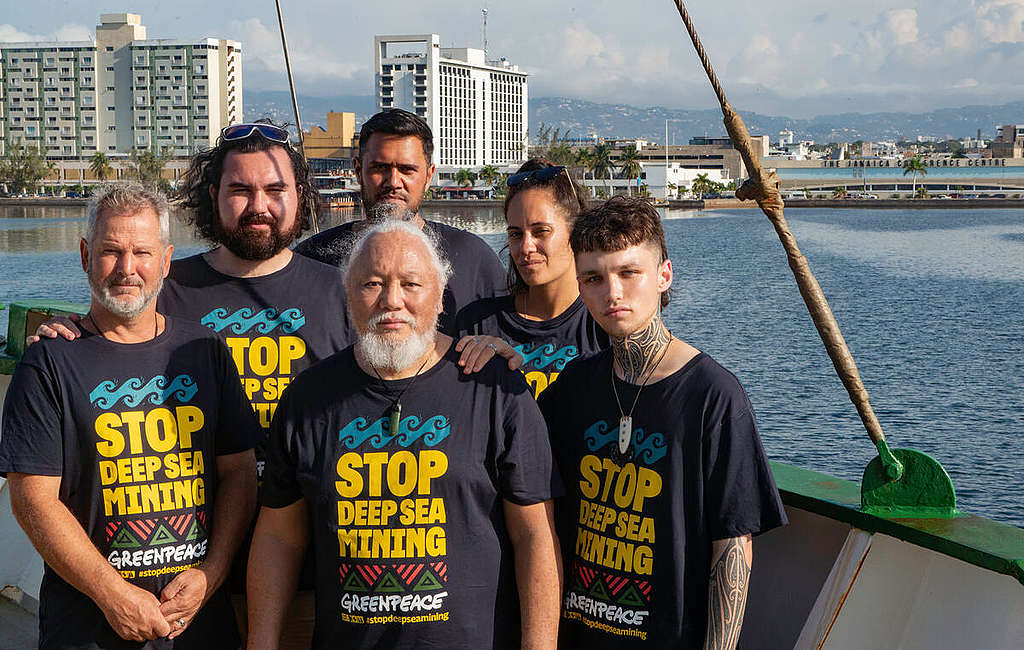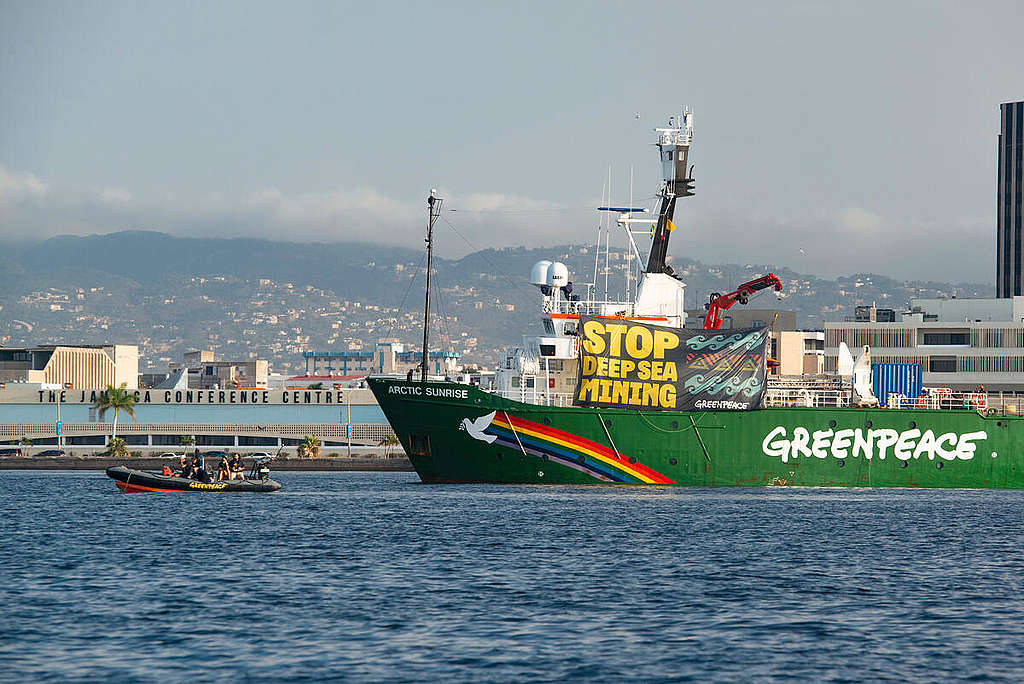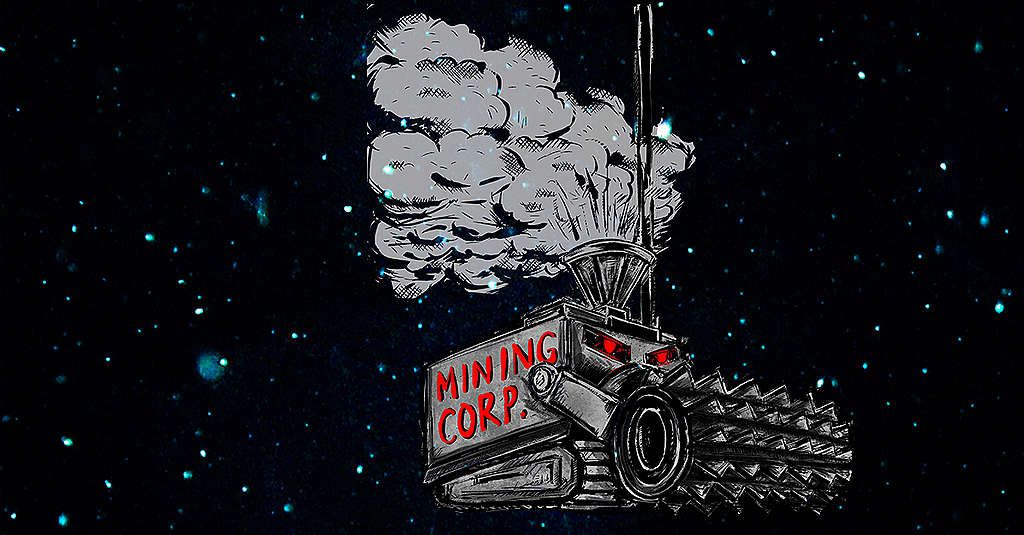A delegation of Pacific activists has arrived in Jamaica ahead of this week’s International Seabed Authority (ISA) conference to ensure Pacific and indigenous participation.
The Greenpeace ship Arctic Sunrise arrived in Kingston early this morning along with the Pacific activists from Aotearoa New Zealand, Cook Islands, Tahiti, and Hawaii, who have been campaigning on deep sea mining but have not previously had a platform at the ISA meeting to express their views, despite this being a decision that could shape their future.

The activists will participate as observers in the ISA meeting and will address governments directly, less than two weeks after the Global Ocean Treaty was agreed at the United Nations.
The meeting is a critical moment for the future of the oceans as deep sea mining companies are rushing the start of this risky industry.
Te Ipukarea Society’s Alanna Matamaru Smith is one of the Pacific activists onboard the Greenpeace ship, and says the collective movement of Pacific activists going to the ISA is monumental.
“Te Ipukarea Society has been very active in country running awareness raising campaigns on the potential environmental impacts of seabed mining. On the international scale, our NGO is well aware of the significant matters and decisions being made at the ISA, but has never had sufficient funds or resources to ever attend such influential meetings,” she said.
“To finally have such an opportunity through Greenpeace to attend the ISA and possibly voice our concerns as a collective indigenous delegation from the Pacific is a well overdue opportunity the ISA has been missing over the duration of their meetings.”

Greenpeace Aotearoa seabed mining campaigner James Hita says the journey to the ISA has been an eye-opening experience as a rangatahi Māori being in the presence of influential tangata o le moana – people of the Pacific.
“This journey began with a Rātana send-off, then Hawaiian chants on the deck of the Arctic Sunrise, discussing Polynesian wayfinding by the stars, all with whales swimming alongside us. This is why we need indigenous people in the room at the ISA. We bring a unique perspective of treating the ocean as a living being. One that must be protected as such. The ocean gives us life, and in turn we must ensure it is still there tomorrow for those who come ahead of us.”
The ISA’s mandate is to preserve the international seabed and control all mineral-related activities. However, the deep sea mining industry has forced governments’ hands, using an obscure and controversial legal loophole to set an ultimatum for governments to allow mining to begin. In 2021, the president of Nauru together with The Metals Company’s subsidiary Nauru Ocean Resources, triggered the “two-year rule” that puts pressure on governments at the ISA to allow deep sea mining to start by July 2023.
Greenpeace International Senior Oceans Policy Adviser Sebastian Losada echoed the call from Pacific activists, saying we cannot allow this reckless industry to go ahead.
“Which governments would want to undermine the achievement of this Treaty by giving a greenlight to deep sea mining so soon after this historic success in New York?”
“We’ve come to Kingston to say loud and clear that deep sea mining is not compatible with a sustainable and fair future. The same States that completed negotiations to protect the oceans must now draw a line and ensure that the deep sea is protected from mining,” says Losada.
James Hita added that governments must push back on this timeline set by this controversial ultimatum in the next two weeks and ensure mining doesn’t go ahead in the next few months.
“Deep sea mining will continue to pose a threat even after the two year deadline, and countries must work for a moratorium on deep sea mining, which could be agreed at the ISA Assembly made up of 167 States plus the European Union. The next ISA Assembly meeting will take place in July 2023 in Kingston, Jamaica.”

It’s time for New Zealand to take a stand. Join our call on the New Zealand government to back a global moratorium on seabed mining.
